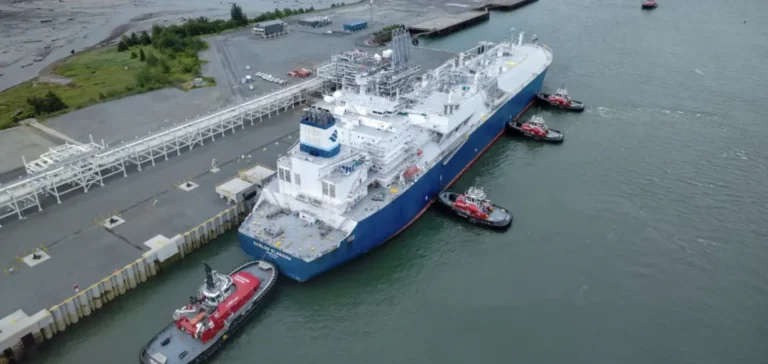Shell Canada Energy, Canadian subsidiary of energy group Shell plc, has just shipped its first cargo of liquefied natural gas (LNG) from its LNG Canada industrial complex. This facility, located in the city of Kitimat, British Columbia, is currently one of Shell’s most important strategic installations, with Shell holding a 40% stake in the project. LNG Canada has an estimated total annual capacity of 14 million tonnes distributed across two production units known as “trains”. Most of the gas produced is destined for Asian markets, according to details provided by Shell Canada Energy in an official statement.
Strong growth in Asian demand
According to forecasts from Shell’s “LNG Outlook 2025” report, global demand for LNG could increase by around 60% by 2040, largely driven by economic growth in Asian countries. In this context, the LNG Canada facility benefits from an advantageous geographic location on Canada’s Pacific Coast, allowing direct access to Asian markets. Shell’s Integrated Gas President, Cederic Cremers, stated that LNG supply would likely be “Shell’s main contribution to the energy transition over the next decade”.
Shell also indicates that Asian markets, faced with a growing need for energy, are shifting towards alternatives to coal. LNG represents a lower-carbon energy source compared to coal when used to generate electricity, making it particularly attractive as a complement to intermittent renewable energies. This context explains the growing interest from Asian markets for liquefied natural gas and promising business prospects for LNG Canada.
Regional economic impact
In addition to its international economic significance, the LNG Canada project represents a significant source of local development for British Columbia. Shell notably emphasises its collaboration with local communities and First Nations in the region. Bringing the two production units into service should provide a reliable and competitive source of energy on the global market, further strengthening Canada’s position among global exporters of liquefied natural gas.
According to Shell Canada Energy, current conditions in the international market as well as the strategic position of the complex allow for sustained medium- and long-term exports to Asian markets, making LNG Canada a key player in meeting growing global energy demand.






















